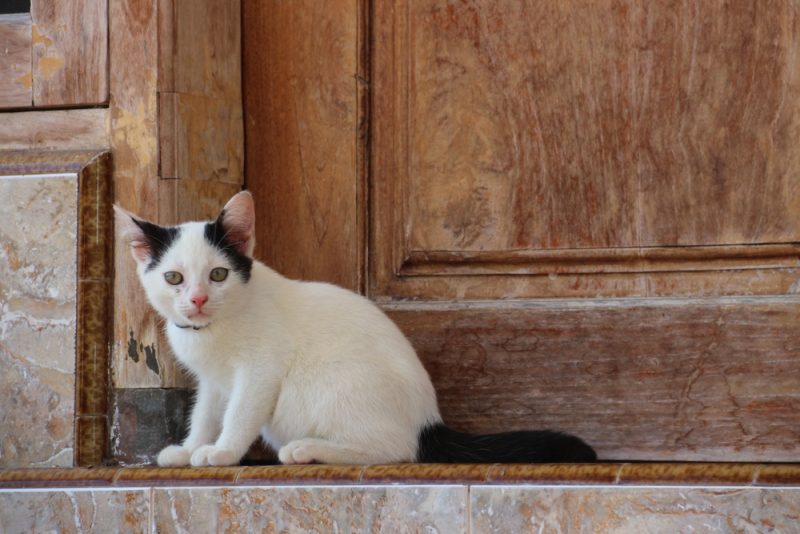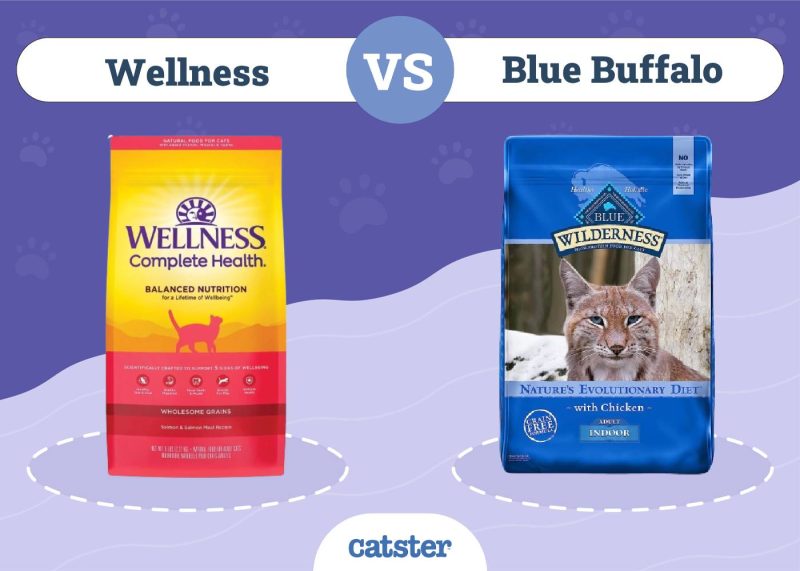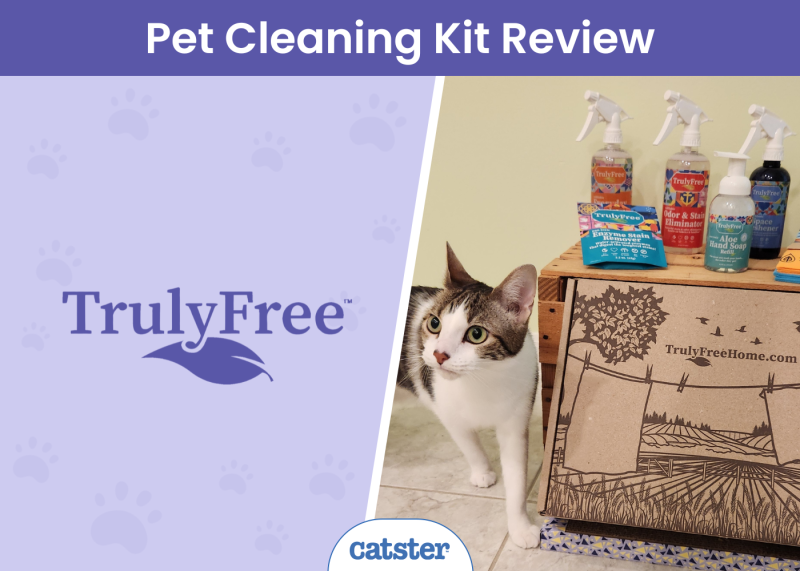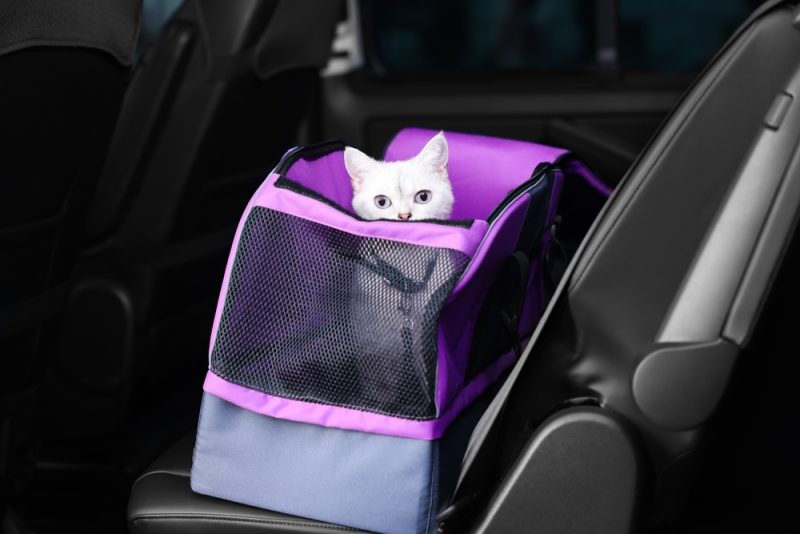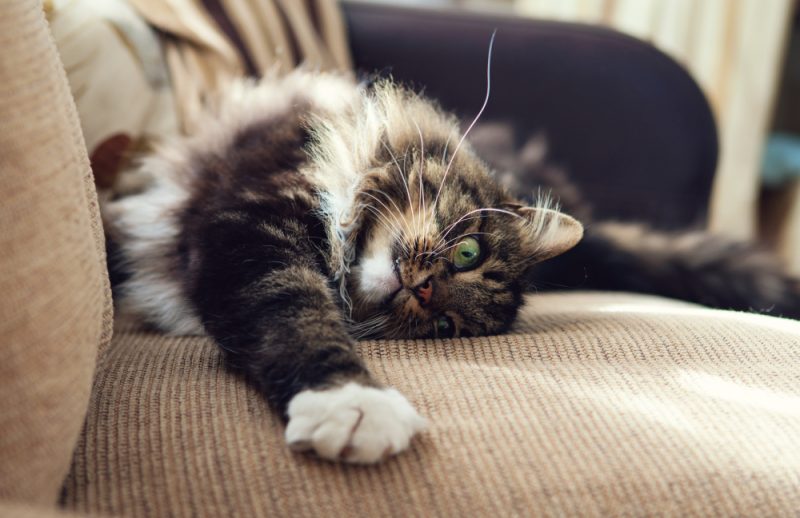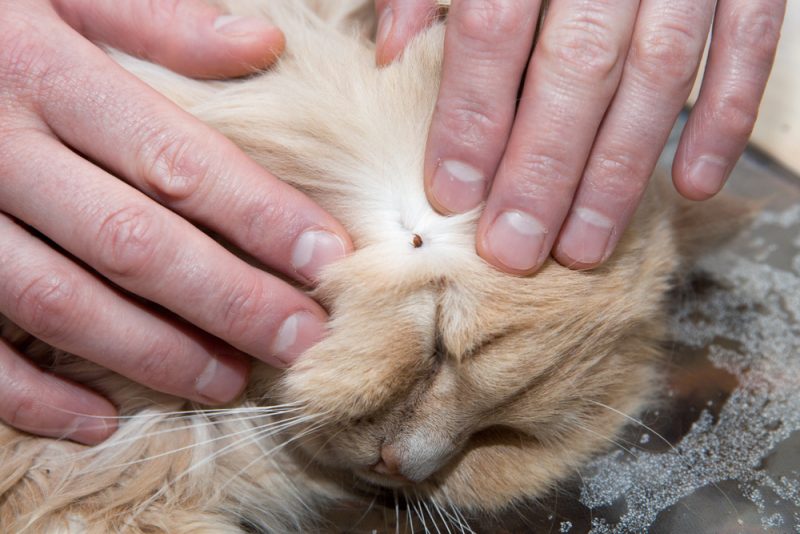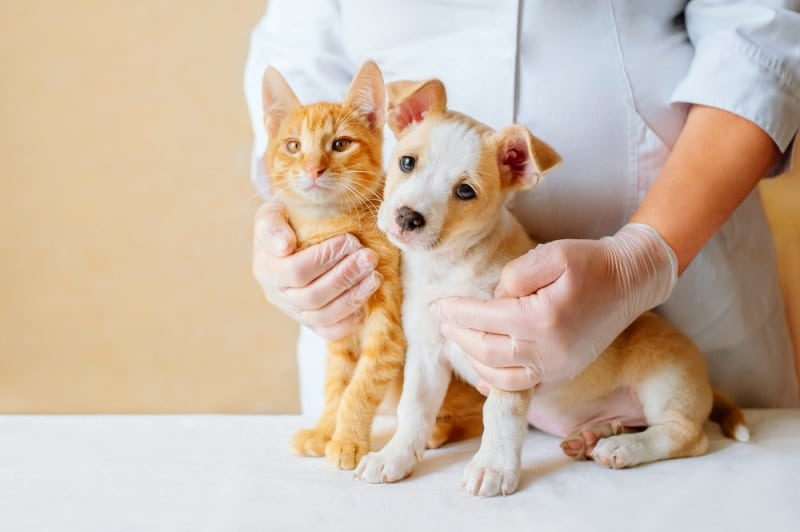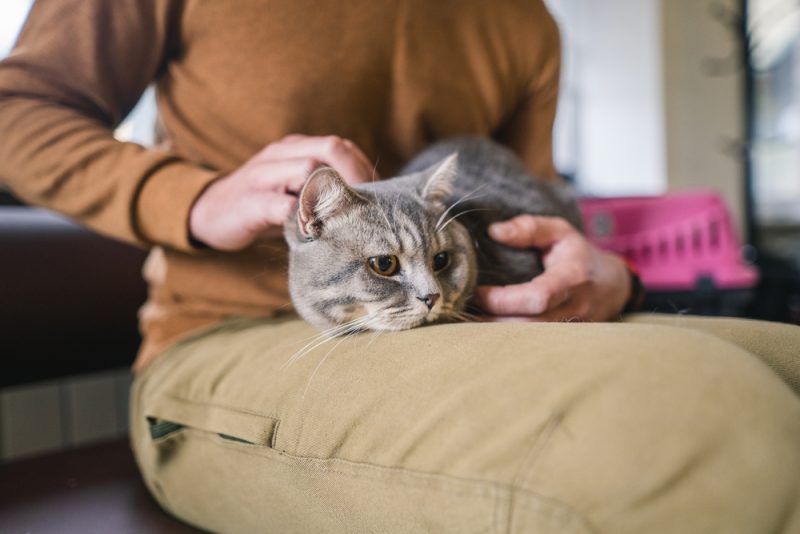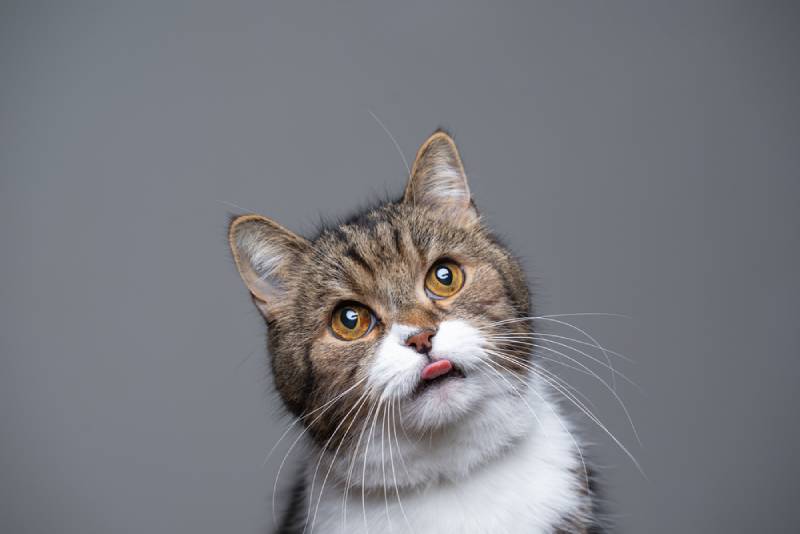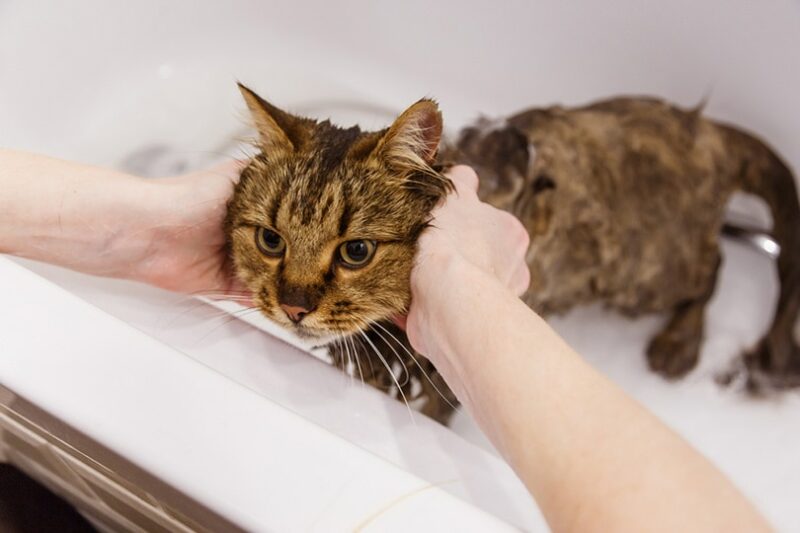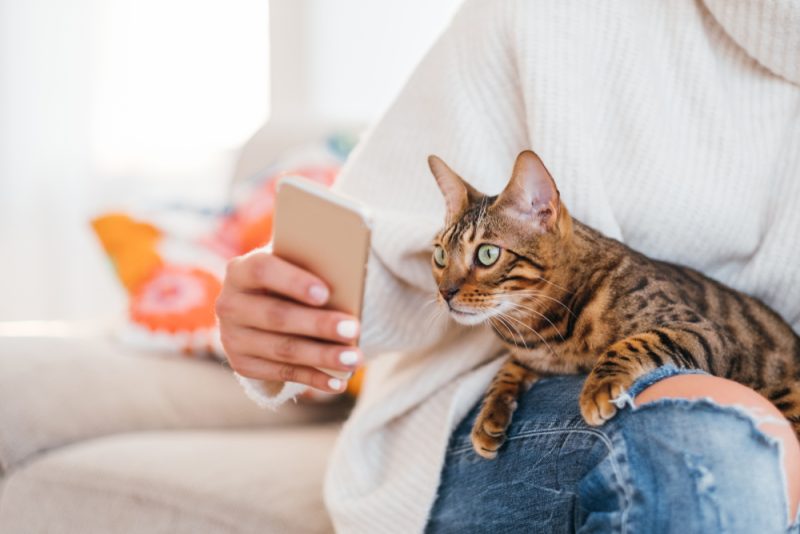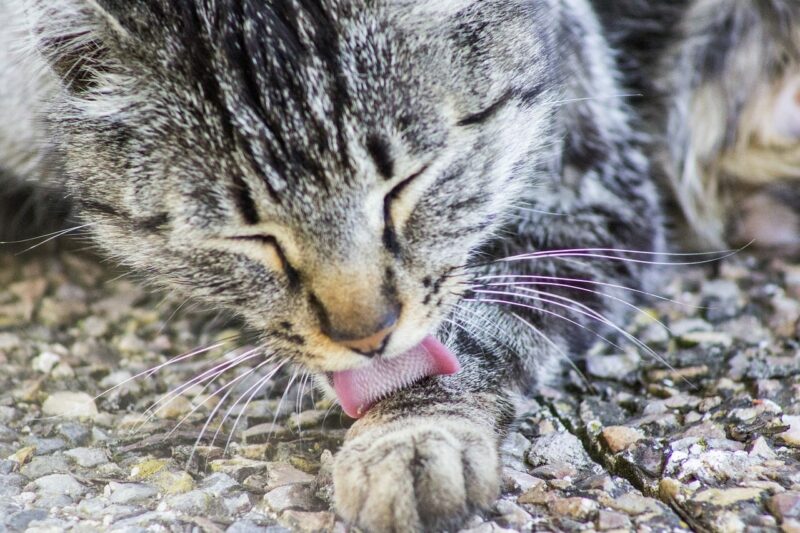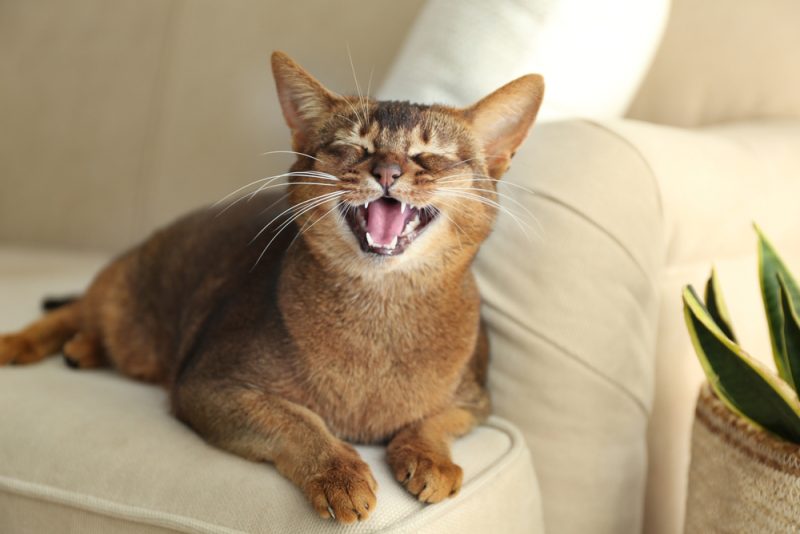In this article
Cats come with all kinds of cute quirks, including their guarding behaviors. As aloof or indifferent as our cats can often appear, it’s always amusing to find them standing sentry at our bathroom or bedroom door.
But why do cats guard our doors? Are they protective, possessive, or uncertain of what’s on the other side? We’ll help you understand your cat’s behavior with this look at six possible reasons your cat stands guard around your doorways.

The 5 Possible Reasons Why Your Cat Guards Your Door
1. Your Cat Wants Your Attention
Although it may look like your cat is guarding the door, their persistent presence is often a simple call for attention. If your cat is meowing loudly or pawing at the opposite side of the door, it’s safe to assume they want you to do something. Maybe they are hungry or simply want to be let out, if they are used to going outside. Cats are highly sensitive to routine and may anticipate interaction, feeding, or play at specific times, making door-waiting a predictable attention-seeking behavior.
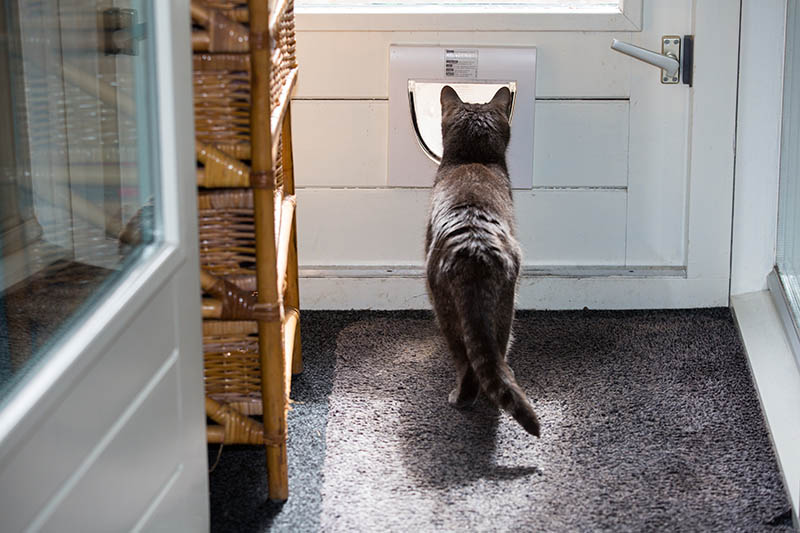
2. Your Cat Is Curious
Cats are naturally inquisitive, a trait that helps them thrive in the wild. By understanding more about their world, they can take better stock of their resources, assess threats and safe spots, and feel secure and confident in their space.
Closed doors are a mystery worth investigating. If your cat is trying to become acquainted with the room, they might linger outside a door until they can gain access. Outdoor cats, in particular, may have a stronger urge to explore when inside and could show more stress behaviors when they can’t get relief. Curiosity and frustration at barriers are common in cats, which is why they often try to open doors or vocalize until allowed in.
3. It’s a Habit
If your cat sits there long enough, they may grow accustomed to it if there is nothing more exciting happening, particularly if sooner or later they get to go inside the room. Using the bathroom at the same time every day or going to bed with the same ritual every night could cause your cat to develop a habit of staying outside the door.
Once it’s part of the routine, they may keep with it because they are bored or they enjoy the familiarity and predictability. This is especially true if you reward them with attention or opening the door, whether you mean it or not. Cats learn quickly through association; if guarding the door results in you appearing, they will repeat it as a successful strategy.
4. Your Cat Is Emotionally Attached to You
As with dogs, cats may develop secure attachment bonds with their owners. Their attachment offers security and comfort. The caregiver is a haven in times of danger and a secure base that allows their dependents to explore their world healthily.
A central facet of attachment styles is proximity, the desire to be close to the owner. As studies have shown, cat-owner relationships can be complex and in a sense, not that dissimilar to dog-owner dynamics.
Depending on the owner’s relationship and bond formed with the cat, early socialization, previous experiences, time of weaning and arriving at the owner’s home, and the cat’s personality and environment, cats may show more or less of a need to be close to their owner. This will also depend on their lifestyle, as cats tend to get more attached if their owners are at home for the most part of the day, and any sudden absence can cause them stress. Cats showing secure attachment often follow their owners, sit near doors, and seek reunion contact after separation.
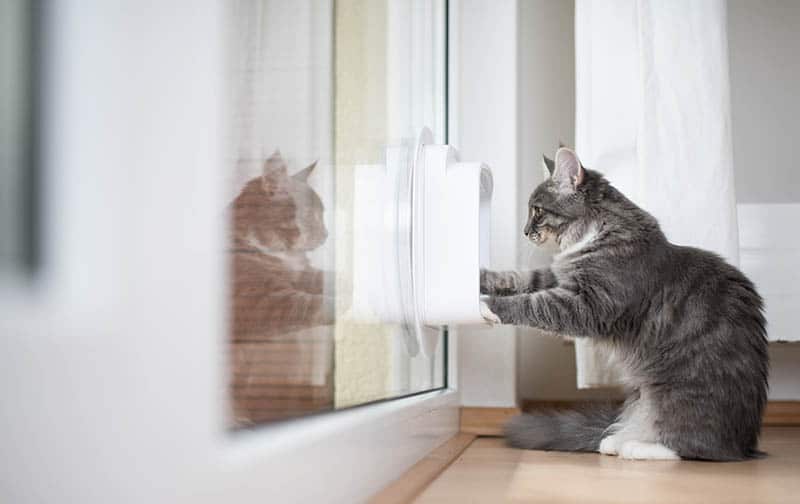
5. Your Cat Is Territorial
Cats are territorial creatures and may even exhibit aggressive behaviors when they feel threatened or cornered. Introducing new cats to the house or neighbor’s cats visiting your yard can often trigger this, as they may create competition over resources and territory.
In these instances, your cat may block access to food bowls, sleeping spots, or litter boxes. If there’s a door separating your cats from something they want, one might take up a habit of guarding it to keep others out. The same may occur if the neighbor’s cat is trying to enter your home through the cat flap, and your cat may stand guard at the door, while other cats become fearful and opt to hide.
Do I Need to Stop My Cat From Guarding My Door?
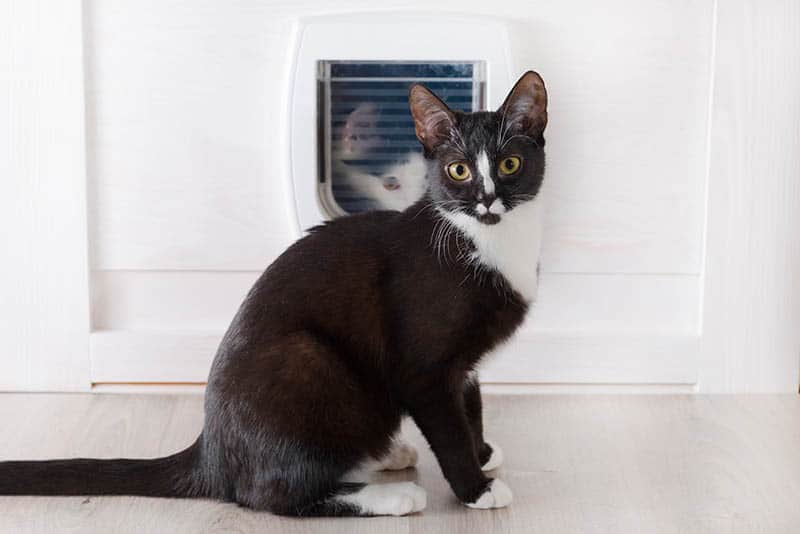
If your cat isn’t hurting anyone or anything by guarding the door and they aren’t distressed, there’s little reason to discourage the behavior. It may be part of the routine now, giving your cat comfort. When your cat is guarding the door because they want to be near you due to separation anxiety or stress, you can help them relax by providing cozy spots to rest and hide alongside a healthy assortment of toys and other enrichment devices. Using pheromone diffusers, increasing physical exercise, mental stimulation, and environmental enrichment, and consulting with your veterinarian, are the next steps in dealing with your cat’s anxiety.
Keeping your cat comfortable and feeling secure when you are away will have them well rested and ready to play when you return. The Hepper Nest is a modern cat bed designed to meet the specific needs of cats. Its high sides offer a sense of security and the bowl shape gives support like a warm hug from their favorite person. Learn more about why your cat will thrive in your absense with the Hepper Nest by clicking here.
- HAPPY COZY CATS - Your kitty will bask in luxurious sherpa-lined comfort while feeling warm, safe,...
- MODERN DESIGN - Contemporary styling with upholstered fabric construction; just like your human...
- WARM FLEECE LINER - Self warming, thick sherpa fleece with microfiber trim.
At Catster, we’ve admired Hepper for many years and decided to take a controlling ownership interest so that we could benefit from the outstanding designs of this cool cat company!
As long as you aren’t keeping them from anything else, your cat can decide to spend their time as they want. Scratching at the door and destruction isn’t desirable, so place a scratch post sprinkled with catnip next to the door, as you don’t want to risk someone walking out of the room and accidentally injuring the cat. Otherwise, hanging out next to the door might be a harmless habit of a healthy cat.
A cat legitimately guarding the door to keep others away is one situation you’ll need to address. Resource guarding is damaging to the relationship between your pets and dangerous to the one that your cat is trying to keep out of the room. In these instances, providing plenty of additional litter boxes, cat trees, hiding spots, food and water bowls, toys, and other essential features around the home will help keep your cats from feeling territorial, as well as using pheromone diffusers.
One of our preferred scratchers, the Hepper Hi-Lo Modern Cat Scratcher, is a surefire way to keep your kitty out of trouble (or at least away from scratching the things they should not!). It's not only stylish, but it's functional as well. It's made of sturdy cardboard with a durable plywood and metal frame and can be set up in three different ways – high, low, or lower. The different positions encourage maximum engagement, exercise and stretching, and of course, intense scratching (they can throw their whole body into it).
With the Hepper Hi-Lo, your cat gets to have a blast scratching like a maniac, and you don't have to worry about them causing so much chaos or scratching your stuff. There are even replacement cardboard pieces available, so you really can let your cat go to town on this, and know that it will be long lasting. Click here to learn more about this awesome scratcher. At Catster, we’ve admired Hepper for many years, and decided to take a controlling ownership interest, so that we could benefit from the outstanding designs of this cool cat company!

Conclusion
Door-guarding arises from several places, but a few situational cues can reveal why your cat posts up outside the room. There could be conflict between cats, or your cat might be wondering what’s going on in this unexplored area, or they may simply seek your attention, waiting to be let out.
Whatever the reason, a cat guarding the door is one of the many idiosyncrasies that make them fun to have in the home. Unless it becomes problematic or harmful for the cat, you can embrace it as another reason to love your cat as an individual.
See also:
- Do You Have a Guard Cat? How Olga Guards Her Territory
- Why Does My Cat Sit By the Door? 5 Common Reasons
Featured Image Credit: Abu khoir, Shutterstock
